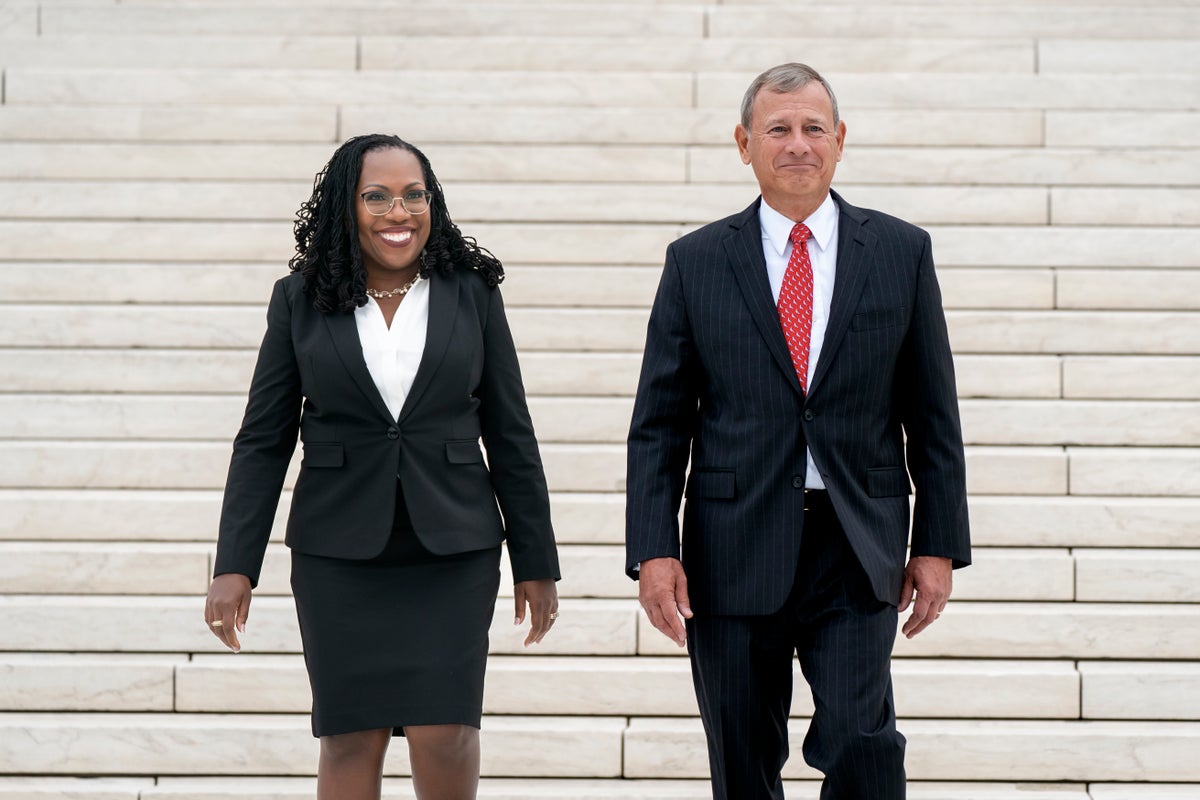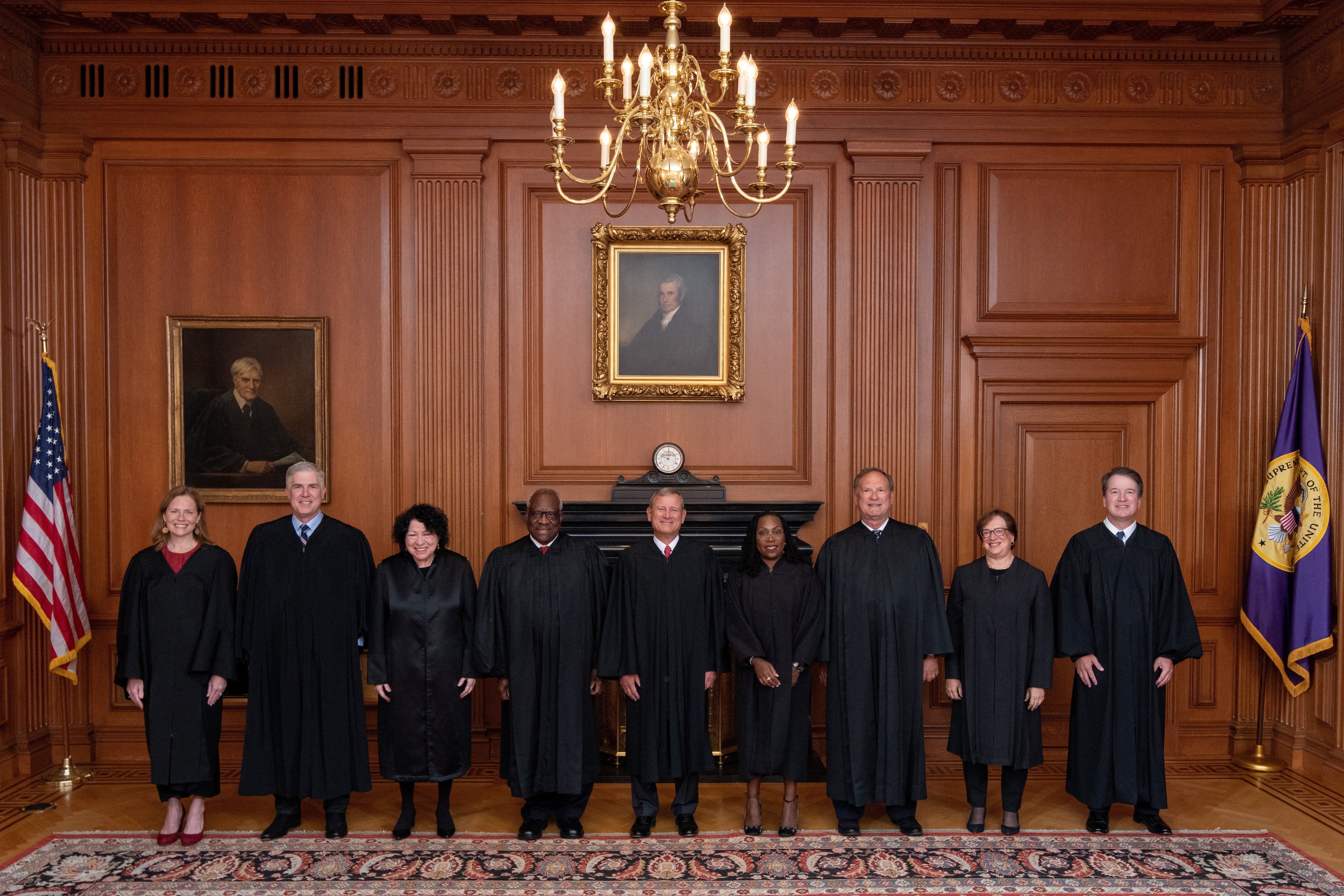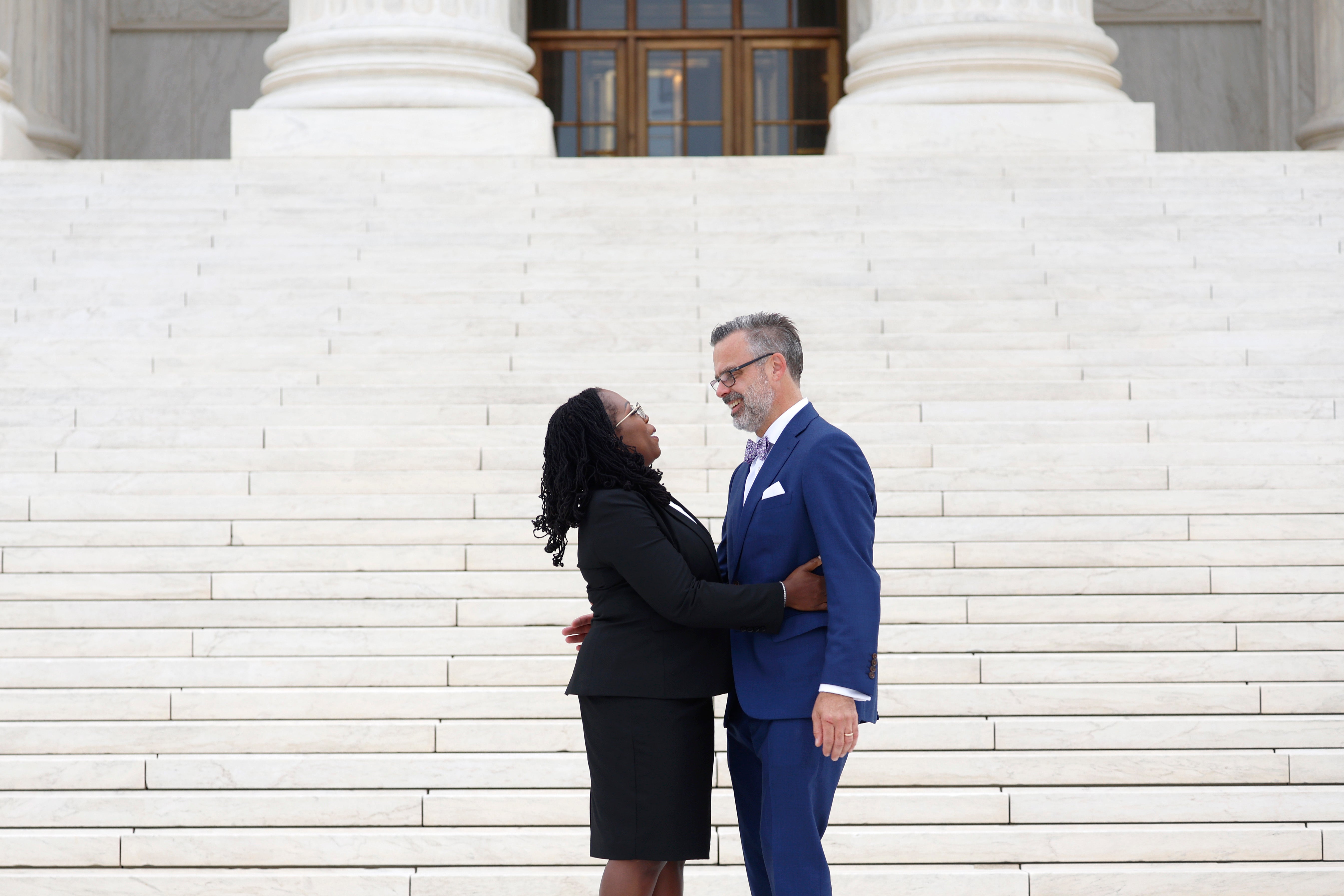
US Supreme Court Justice Ketanji Brown Jackson received a formal welcome at the nation’s high court before the justices convene for their next term beginning on Monday.
An investiture ceremony for Justice Jackson on 30 September was attended by members of the court, President Joe Biden, Vice President Kamala Harris and members of Congress, witnessing the formal introduction of the first-ever Black woman and first former public defender to serve on the nine-member panel.
Justice Jackson was sworn into the role on 30 June, replacing now-retired Justice Stephen Breyer.
In Friday’s brief invitation-only ceremony, Chief Justice John Roberts administered the judicial oath, and Justice Jackson promised to “administer justice without respect to persons, and do equal right to the poor and to the rich.”
The chief justice then wished her “a long and happy career in our common calling”.
Following the ceremony, Justices Jackson and Roberts emerged from the courthouse and walked down its rarely used marble steps together.
Justice Jackson joins the court’s liberal minority, dominated by a conservative majority that includes three justices appointed by former president Donald Trump.

Her addition will not change the court’s ideological makeup. But her appointment, confirmation and inauguration represent significant milestones in the court’s history as the first Black woman on the bench, and her depth of experience as the first justice with a significant criminal defence background since Thurgood Marshall brings invaluable perspective to a court that includes three former prosecutors.

The court is still reeling in the aftermath of a turbulent session that included a ruling to strike down the constitutional right to abortion and an ongoing investigation into a published draft of that opinion leaked to the media one month before the final decision was handed down.
Democratic officials and the White House have derided the court’s “extremist” decision making, landing significant blows to efforts to combat the climate crisis and the critical firewall between church and state.
Justice Jackson will hear her first arguments on Monday, when the court reconvenes for another round of controversial cases that could see major decisions on voting rights and LGBT+ discrimination, among other issues.







